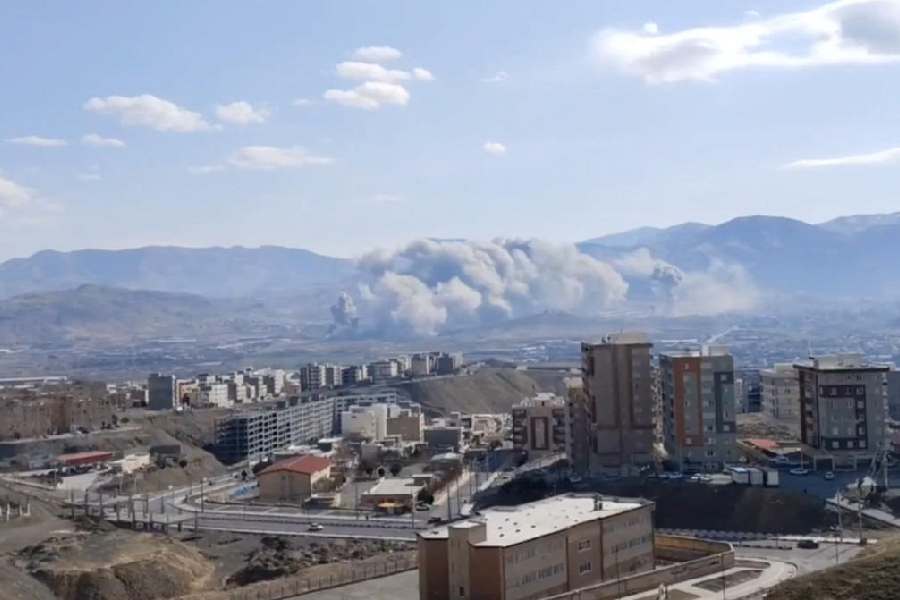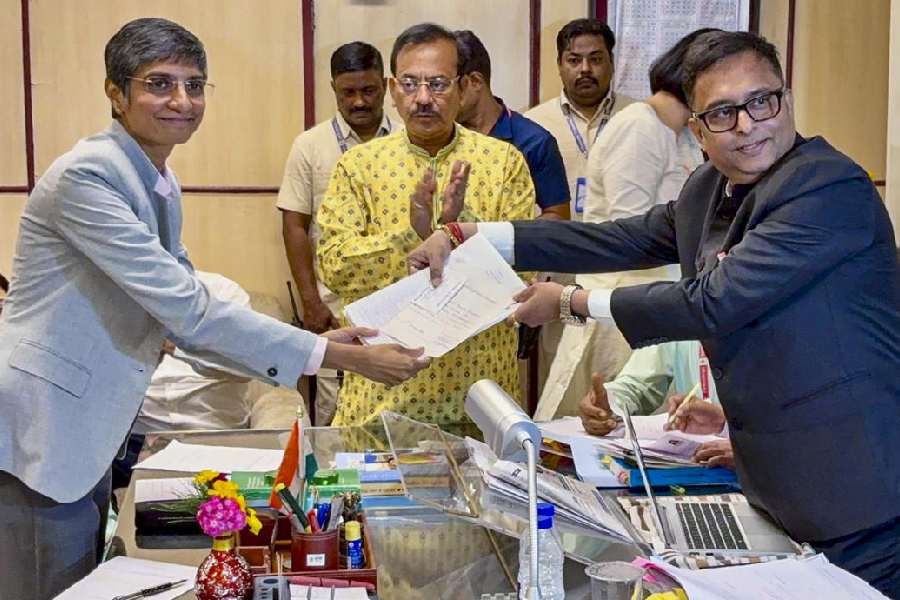 Friday, 06 March 2026
Friday, 06 March 2026
 Friday, 06 March 2026
Friday, 06 March 2026
Indian border guards have detained about 60 fugitives who fled prisons in Nepal amid days of violent protests that forced Prime Minister K P Sharma Oli to resign, even as clashes inside jails left several inmates dead and prompted extended curfews across the Himalayan nation.
Officials said the Sashastra Seema Bal (SSB), which guards the 1,751-km-long open frontier with Nepal, intercepted escapees over the past two days from multiple locations in Uttar Pradesh, Bihar and West Bengal.
Most of them are Nepali nationals suspected to have broken out of jails during the unrest, while “two or three of those nabbed claim to be of Indian origin and this fact is being ascertained,” they added.
The detainees have been handed over to state police forces for questioning.
“The SSB is in touch with its Nepali counterpart APF. They have also undertaken joint patrols with them apart from independent flag marches in the border areas to send across a message that the Indian side is ready to meet any challenge emerging from the recent developments in Nepal,” a senior official said.
On Thursday morning, three inmates were killed and 13 others injured after a violent clash broke out between prisoners and security personnel at the Ramechhap district prison in Madhesh province.
Police sources said the confrontation began when inmates tried to blow open the facility with a gas cylinder, prompting forces to open fire. The injured were rushed to Ramechhap District Hospital.
With these deaths, the number of prisoners killed during clashes with security forces has risen to eight since violence erupted on Tuesday.
Earlier, five juvenile inmates were killed and four seriously injured in a clash at the Naubasta Correctional Home in Banke district.
Mass jailbreaks have rattled Nepal’s prison system.
“The jailbreaks began when youth protesters stormed multiple prison facilities, setting administrative buildings ablaze and forcing open prison gates. By Wednesday evening, preliminary reports confirmed that over 15,000 inmates had fled from more than 25 prisons, with only a fraction returning voluntarily or being rearrested,” newspaper The Kathmandu Post quoted police as saying.
In Gandaki province, 773 inmates broke free from the Kaski District Prison. “Among the escapees were 13 Indian nationals and four other foreigners,” jailor Rajendra Sharma said.
Director General of Prison Management Lila Prasad Sharma confirmed a nationwide manhunt. “We are mobilising all available resources to re-arrest them as quickly as possible,” The Kathmandu Post quoted him as saying.
According to reports, major facilities hit included Kathmandu Valley’s Central Jail in Sundhara (3,300 escapees), Nakkhu Prison in Lalitpur (1,400), Dillibazar Prison (1,100), Jhumka Prison in Sunsari (1,575), and several in Banke, Chitwan, Kapilvastu, Kailali and Sindhuli districts.
Nepal Army, which took control of security on Tuesday night after PM Oli’s resignation, has extended prohibitory orders in Kathmandu, Lalitpur and Bhaktapur districts. The curfew now allows short windows of public movement for essentials.
“After allowing a few hours for movement to the general public to carry out essential works, the restrictive orders will be in place from 10 am till 5 pm,” a Nepal Army notice said. Night curfew will follow from 7 pm till 6 am.
People rushed to markets and groceries when curfew was briefly lifted, even as troops patrolled streets scarred by arson and vandalism.
The Army warned that “any form of demonstrations, vandalism, arson, or attacks on individuals and property would be treated as criminal acts and dealt with accordingly.”
The Tribhuvan International Airport in Kathmandu resumed operations Wednesday evening after a 24-hour shutdown.
According to Nepal’s Health Ministry, at least 30 people have died and over 1,000 injured since the ‘Gen Z’ youth-led protests began on Sunday. Debate continues over who the protesters will back to lead an interim government, with names of former Chief Justice Sushila Karki, Kathmandu Mayor Balendra Shah and Dharan Mayor Harka Sampang under consideration.







